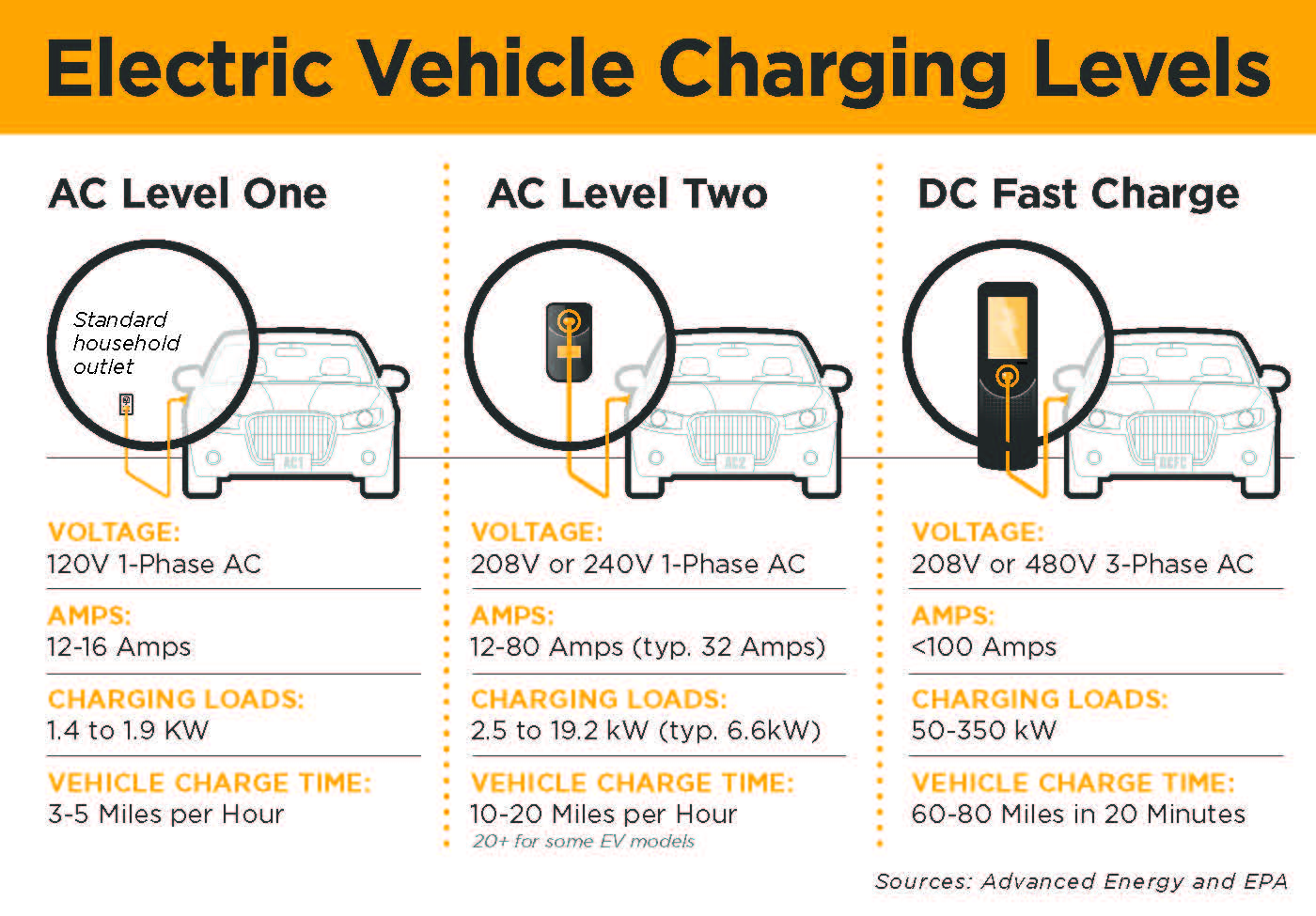
Considering an EV?
In light of increasing prices at the pump, you may be wondering, “Should I get an electric vehicle?”. This article is the first in a series to give you the information that you need to make an informed decision.
Hybrid or Electric?
Conventional vehicles have an internal combustion engine; the most common fuels are gasoline and diesel. Hybrid vehicles have both a gasoline engine and an electric motor and battery; both gas and electricity power the wheels. The electric motor and battery are designed to improve fuel economy, so less gasoline is used to operate the vehicle. The battery is charged solely by operating the vehicle; no plug-in is required or possible. Plug-in Hybrid Electric Vehicles (PHEVs) have larger batteries than hybrids and use both gas and electricity to power the wheels of the car. These vehicles vary in their electric range, but shift to gasoline-only operation when battery power is depleted. These vehicles must be plugged in to recharge the battery.
Electric Vehicles (EVs) are powered solely by electricity and are recharged by plugging in the vehicle. Charging Electric vehicle (EV) owners have multiple options for charging their vehicle at home. There are three common EV charging levels: Level One, Level Two and DC Fast Charge. Level One is the most basic charging level. If you choose this option, your EV will typically include an adapter that plugs into a typical 120-volt outlet. This is the easiest and cheapest charging solution, but it will take much longer to charge your EV. This type of charging will provide 3-5 miles of driving range for every hour of charging. Level Two is about three to five times faster than Level One, but this level of charging often requires separate purchases and in-stallation. The EV is plugged into a 240-volt outlet, which is used for larger appliances, like a clothes dryer. Most homes do not include a 240-volt outlet in garages, so the outlet must be installed by a licensed professional. You typically see Level Two charging stations at shopping malls, office buildings and multi-family community spaces. This type of charging will provide 10 to 20 miles of range for every hour of charging
DC Fast Charge stations are typically seen near high-traffic public areas, like gas stations, rather than in homes. This is the fastest charging level, with the ability to charge an EV at 80% in under 30 minutes, but not all vehicles are capable of this.

Charging at Home
If you’re charging an EV at home, there are a few things to keep in mind. EV charging creates additional energy demand. Depending on the energy demand, it is possible that you may need to upgrade your service to accommodate. This is an extra cost that many don’t take into consideration. The time of day you charge your EV can have an impact on the grid and the service at your home. By letting us know about your EV charging levels, we can help ensure your home is prepared for the additional energy consumption. Beginning July 1, 2022, Illinois will offer a $4,000 rebate with the purchase of a new or used electric vehicle. That rebate could possibly be utilized with the proposed $7,500 federal rebate. Consult your tax advisor for more information. As of January 1, 2020, annual registration fee for electric vehicle or ‘EL” plates is $251 annually, compared to $151 for a standard vehicle. As of February 2022, the state of Illinois has 38,977 registered electric vehicles.
Maintenance
Forget the oil changes! The majority of upkeep maintenance on electric vehicles is windshield wiper fluid and blades. However, keep in mind that the cost of replacing the battery is much more than a gas-powered vehicle. Battery life, size, and cost varies by vehicle so make sure that you are aware of the cost to replace the battery before making the purchase. As the conversations around electric vehicles progress, we will continue to be your trusted source of information. Your cooperative is in line to incorporate an electric vehicle into our small vehicle fleet.
Sources: U.S. Department of Energy and the U.S. Environmental Protection Agency, fueleconomy.gov, March 2022 National Rural Electric Cooperative Association (NRECA), www. cooperative.com, Electric Vehicle Charging Levels, Types of Electric Vehicles Illinois Secretary of State, ilsos.gov, Electric Vehicle Counts by County

